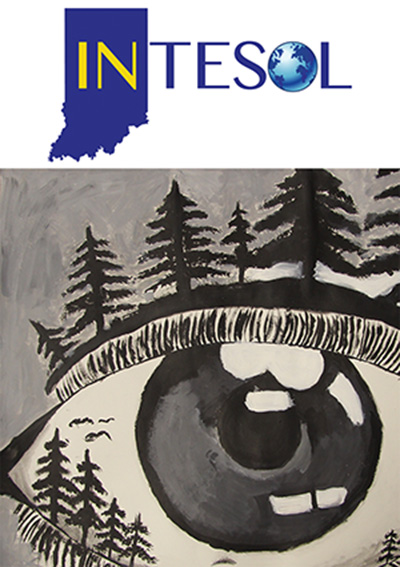Emerging Roles of English in Afghanistan
Abstract
This research paper examines the spread of English in Afghanistan. Specifically, it discusses the users and uses of English language in different settings such as educational, social, economic, and political. It explains the prevailing English teaching methods and the Afghan people’s attitudes toward English and English speakers. To characterize the social and cultural contexts, I used autobiographical data such as personal experiences, studies, observations, oral stories, documents, and sources. The sources also include personal diaries, memorials, epistles, videos, photos and encounters to provide accounts of the role of English and its functional allocation in Afghanistan. The result of the research shows that the roles of English are increasing rapidly in some domains and becoming as important as Pashtu, which is the second official and widely used language in the country. However, the consequences of the spread of English suggest that there is a need for proper language planning and educational policy-making to teach English and to give learners in different parts of the country equal access to it. Additionally, to implement a policy requiring English as the medium of instruction in higher education and to extend the use of English in different settings, users of English starting need security, more language training, equipment, and English materials.
References
References
Atkinson, P. (1990). The Ethnographic imagination: Textual constructions of reality. London: Routledge.
Azami, D. (2009, January 12). English takes hold in Afghanistan. British Broadcasting Corporation. Retrieved from http://news.bbc.co.uk/2/hi/south_asia/7493285.stm
Berns, M. (1990). Contexts of competence: Social and cultural considerations in Communicative Language Teaching. New York: Plenum Press.
Berns, M. (1990). Why language teaching needs the sociolinguist. Canadian Modern Language Review, 46, 339-353.
Bolton, K. (2006). World Englishes Today. In B. B., Kachru, Y. Kachru & C. L. Nelson
(Eds.), Handbook of World Englishes (pp. 240-269). New York, NY: Blackwell Publishing.
British Council in Afghanistan. (2017). Teaching English Radio. Retrieved from
http://www.britishcouncil.org/afghanistan
Building on success, the Afghanistan compact. (2006, January 31-February 1). Paper presented
at the London Conference on Afghanistan, London, UK. Retrieved
Hammersley, M., & Atkinson, P. (1995). Ethnography: Principles in practice (2nd ed.). London: Routledge.
Hikmat. A. (2009).The effects of English teaching methods course of the English Department of Kabul Education University on secondary school English teachers (unpublished Master Thesis). University of Massachusetts Amherst, Massachusetts
Kabul USA Embassy. (2017). English language development programs and resources by the Public Affairs Section. Retrieved from https://af.usembassy.gov/education-culture/english-language-programs/
Kachru, B. B. (1996). Resources for research and teaching. In L. Smith & M. L. Forman (Eds.), World Englishes 2000 (pp. 209-51). Honolulu:University of Hawai & East-West Center.
Kachru, B. B. (1998). World Englishes and culture wars. Paper presented at the Sir Edward Youde Memorial Fund Lecture. The University of Hong Kong: Hong Kong.
Kachru, B. B. (1992). The other tongue: English across cultures (2nd ed.) . University of Illinois Press, Urbana, IL
Kachru, Y., & Nelson, C. L. (2006). World Englishes in Asian contexts. In Y. Kachru &
C. L. Nelson (Eds.), Language Arts & Disciplines. Hong Kong University Press, Hong Kong
Kachru, Y., & Smith, L. (2009). The karmic cycle of World Englishes: Some futuristic constructs. World Englishes, 28(1), 1-14.
Mahanta, S. (2009, March 4). Afghan translator finds refuge, but few benefits in U.S. Online PBS news Hour. Retrieved from (http://www.pbs.org/newshour/updates/asia/jan-june09/afghan_03-04.html
Maps of World. (2013). Map of Afghanistan. Retrieved from http://www.mapsofworld.com/afghanistan/afghanistanpolitical-map.html
Ministry of Communication and Information Technology, Islamic Republic of Afghanistan. (2010). Official website. Retrieved from http://www.mcit.gov.af/
Ministry of Education: Islamic Republic of Afghanistan. (2008). National report
on the situation of adult learning and education. Retrieved from http://www.uil.unesco.org/fileadmin/multimedia/uil/confintea/pdf/National_Reports/Asia%20-%20Pacific/Afghanistan.pdf
Ministry of Higher Education: Islamic Republic of Afghanistan. (2017). Kabul University History. Retrieved from http://ku.edu.af/en
Nasuti, M. J. (2009, October 12). The U.S. Department of State tells Muslims that they only have a future if they learn English. Kabulpress.org. Retrieved from http://kabulpress.org/my/spip.php?article414
United Nations Educational, Scientific and Cultural Organization. (2014). National higher education strategic plan. Retrieved from http://planipolis.iiep.unesco.org/upload/Afghanistan/Afghanistan_HESP_2010-2014.pdf
Voice of America. (2009). Taliban Militants Kill English Teacher in Afghanistan. Retrieved from http://www.voanews.com/content/a-13-2007-11-15-voa51-66698677/558924.html
Zita, K. (2004, April). Afghanistan telecom brief. Paper presented at USTDA South Asia
Communications Infrastructure Conference, New Delhi, India.


